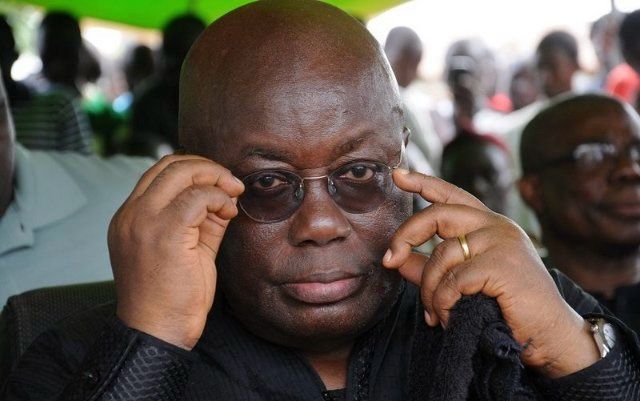Dr. Jonathan Asante Otchere, a political analyst at the University of Cape Coast, has intensified his critique of former President Nana Addo Dankwa Akufo-Addo, asserting that unfolding events solidify Akufo-Addo’s position as Ghana’s most disappointing and vulnerable ex-president. Otchere’s claim, initially made on Metro TV’s Good Morning Ghana program, gains traction from the New Patriotic Party’s (NPP) internal election review report, which he alleges places significant blame on Akufo-Addo for the party’s defeat in the 2024 general elections. This aligns with Otchere’s earlier prediction that Akufo-Addo’s post-presidency would be marred by his perceived failures.
The election review report, spearheaded by Professor Mike Aaron Oquaye, echoes the findings of an independent survey conducted by Global InfoAnalytics. According to Otchere, both the report and the survey point to Akufo-Addo as the primary cause of the NPP’s electoral setback. The Global InfoAnalytics survey reportedly indicated that 68% of respondents attributed the NPP’s loss to Akufo-Addo, while a smaller percentage assigned blame to Vice President Mahamudu Bawumia and Finance Minister Ken Ofori-Atta. Otchere interprets this data as evidence that internal factors within the government, primarily linked to these individuals, significantly contributed to the party’s downfall.
Otchere further argues that the NPP is hesitant to hold these individuals fully accountable due to the enduring influence of their political legacy. He suggests that this reluctance stems from a fear of exposing the party’s internal divisions and potentially undermining its future prospects. He contends that this dynamic is playing out in Dr. Bawumia’s recent public pronouncements, where he appears to be distancing himself from Akufo-Addo’s record. Otchere interprets Bawumia’s actions as a calculated political strategy aimed at establishing his own independent leadership identity and separating himself from the perceived failures of the previous administration.
Dr. Bawumia, during the NPP’s national thank-you tour, outlined a series of factors that contributed to the party’s election defeat. He acknowledged the impact of economic hardship, internal disunity, unpopular policies, and what he termed the “arrogance of power” that alienated the electorate. Specifically, Bawumia cited the high cost of living, the government’s resistance to reshuffling appointees, the controversial E-Levy, and the Domestic Debt Exchange Programme (DDEP) implemented under the International Monetary Fund’s debt restructuring plan as key contributors to the party’s rejection at the polls.
Otchere’s analysis portrays a complex internal political landscape within the NPP as the party grapples with the aftermath of its electoral defeat. He highlights the tension between acknowledging the shortcomings of the previous administration and navigating the political sensitivities surrounding the legacy of influential figures like Akufo-Addo. Bawumia’s attempts to distance himself from Akufo-Addo’s record, while simultaneously acknowledging the government’s failures, underscore the delicate balance he must strike as he seeks to position himself as the future leader of the party.
This evolving narrative within the NPP suggests a period of introspection and potential realignment as the party seeks to regain its footing. The Oquaye report, though not publicly released, appears to be a catalyst for internal debate and a potential reckoning with the factors that led to the party’s loss. The public pronouncements of figures like Bawumia, interpreted by analysts like Otchere as strategic repositioning, signal the emerging power dynamics within the party as it looks towards the future. The extent to which the NPP can address these internal challenges and present a unified front will likely determine its success in future elections.


